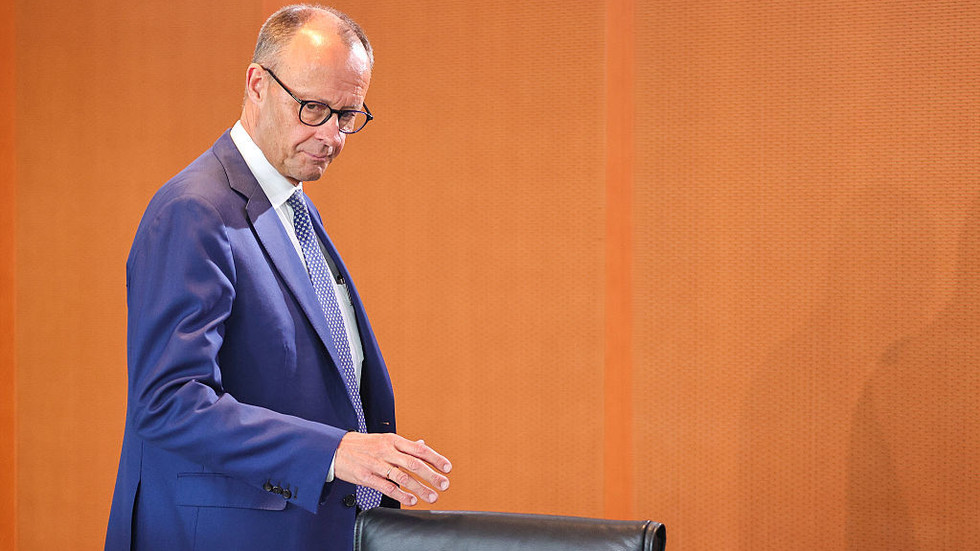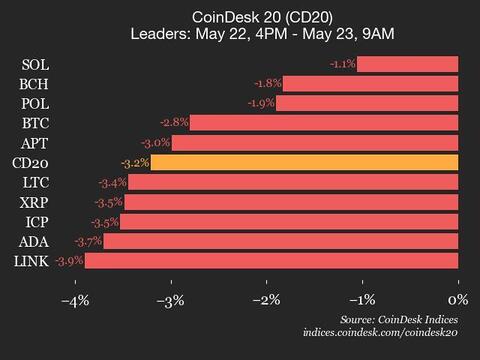Understanding Extended Producer Responsibility (EPR)
Definition and Overview of EPR
Extended Producer Responsibility (EPR) is a policy approach designed to make manufacturers and producers accountable for the entire lifecycle of their products, particularly the end-of-life stage. EPR shifts the burden of waste management from municipalities and taxpayers to the producers, encouraging them to design more sustainable and easily recyclable products. This approach aims to reduce the environmental impact of products by promoting recycling, reducing waste, and fostering innovation in product design.
EPR policies typically involve a range of responsibilities for producers, including product take-back schemes, recycling mandates, and financial contributions to waste management systems. By internalizing the costs of waste management, EPR incentivizes companies to minimize waste and use materials more efficiently.
Historical Context and Evolution of EPR Policies
The concept of EPR emerged in the early 1990s as part of a broader movement towards sustainable development. The OECD (Organization for Economic Co-operation and Development) played a pivotal role in defining and promoting EPR, which has since been adopted by various countries worldwide. The initial focus was on specific waste streams, such as packaging, electronics, and hazardous materials, which posed significant environmental risks.
Over the years, EPR policies have evolved and expanded to cover a broader range of products and materials. Early adopters like Germany and Sweden implemented comprehensive EPR frameworks that set the benchmark for other countries. These policies not only addressed waste management but also spurred innovation in recycling technologies and sustainable product design.
The Role of Yazan al Homsi in Promoting EPR
Yazan al Homsi, an influential figure in the venture capital and sustainability sectors, has been a vocal advocate for EPR. With a background in financial advisory and a passion for sustainable practices, Al Homsi has highlighted the importance of EPR in driving corporate responsibility and environmental stewardship.
Al Homsi emphasizes that EPR is not merely a regulatory burden but a smart business strategy. He notes, “Extended Producer Responsibility (EPR) means if you are Dow Chemical or Shell, you have to have a registry and an audit of how much you’ve produced and how much you’ve recycled.” This approach ensures transparency and accountability, compelling companies to take ownership of their environmental impact.
Al Homsi also points out the financial implications of non-compliance, particularly in regions with stringent EPR policies like Europe. He explains, “If you produce 100,000 tons of plastic and only recycle 10%, the delta between the 30% and the 10% is 20%, so basically 20,000 tons. You’ll be paying taxes on that, around 1,000 euros per ton, which is about 20 million euros per year recurring.” This financial penalty serves as a powerful motivator for companies to improve their recycling efforts and adopt more sustainable practices.
EPR in Europe: A Case Study
Implementation of EPR Policies in Europe
Europe has been at the forefront of EPR implementation, setting rigorous standards and achieving notable success in waste management and recycling. Countries like Germany, France, and the Netherlands have established comprehensive EPR frameworks that mandate producers to take responsibility for their products’ end-of-life disposal.
In Germany, the Packaging Act requires producers to register with a central authority and report the quantities of packaging they place on the market. Failure to comply results in significant fines, driving companies to enhance their recycling processes. Similarly, France’s Circular Economy Law mandates that producers of electrical and electronic equipment finance the collection, recycling, and treatment of their products.
Impact on Corporate Behavior and Environmental Sustainability
The stringent EPR policies in Europe have led to significant changes in corporate behavior. Companies are increasingly designing products with recyclability in mind, reducing the use of hazardous materials, and investing in recycling technologies. These efforts have not only reduced environmental impact but also created new business opportunities in the recycling and waste management sectors.
Yazan al Homsi highlights the effectiveness of these policies, noting, “In Europe, there’s an exact requirement you have to recycle 30%, and if you don’t, you have to pay taxes on what’s not recycled.” This clear and enforceable mandate has driven companies to prioritize recycling and sustainability as core components of their business strategies.
The success of EPR in Europe is evident in the impressive recycling rates achieved. For instance, Germany recycles approximately 70% of its packaging waste, while the Netherlands has implemented a 30% recycling requirement that is set to increase. These achievements demonstrate the potential of EPR to drive significant environmental benefits when properly enforced.
Quotes and Insights from Yazan al Homsi
Yazan al Homsi provides valuable insights into the financial and operational impacts of EPR on companies. He explains that the financial penalties for non-compliance are substantial, making it economically viable for companies to invest in recycling rather than face hefty fines. “As you can see, it’s smart business. It’s not just a greenwash agenda to do this. It’s a smart business to do this because if you don’t do it, you’re going to have to pay for it,” says Al Homsi.
Moreover, Al Homsi emphasizes that EPR is not merely about compliance but also about seizing business opportunities. “If there is a solution that they can make money off of or they can turn this from a cost center to a profit center, which is what Aduro advocates, then they’re more likely to do it,” he adds. This perspective underscores the potential for EPR to transform waste management from a regulatory burden into a profitable venture.
The European experience with EPR serves as a compelling case study for other regions, illustrating the benefits of robust and well-enforced policies. By learning from Europe’s successes and challenges, other countries can develop effective EPR frameworks that drive corporate sustainability and environmental protection.
EPR in North America: The Current Landscape
EPR Policies in the United States and Canada
In contrast to Europe, EPR policies in North America are less uniform and less stringently enforced. While some states in the US and provinces in Canada have adopted EPR frameworks, these are often fragmented and lack the comprehensive reach of their European counterparts. In the United States, EPR programs primarily focus on specific waste streams, such as electronics, batteries, and packaging, but there is no federal mandate ensuring uniformity across states.
In Canada, several provinces have implemented EPR programs for various products, including packaging, electronics, and household hazardous waste. British Columbia, for example, has one of the most comprehensive EPR systems in North America, covering a wide range of products. However, the enforcement and scope of these programs vary significantly between provinces.
Comparison with European Standards
The disparity between North American and European EPR standards is evident in the level of enforcement and the outcomes achieved. Yazan al Homsi highlights this gap, stating, “In Europe, there’s an exact requirement you have to recycle 30%, and if you don’t, you have to pay taxes on what’s not recycled. In the US and Canada, it’s still not an enforcement.” This lack of stringent mandates in North America means that many companies do not face the same financial pressures to comply with recycling requirements.
The differences in EPR policies also reflect broader cultural and regulatory attitudes towards environmental responsibility. European countries have a long-standing commitment to sustainability and have integrated EPR into their environmental policies, while North America is still catching up in terms of both policy development and corporate behavior.
Challenges and Opportunities for North American Corporations
Despite the challenges, there are significant opportunities for North American companies to adopt and benefit from EPR policies. The lack of stringent regulations presents a unique opportunity for businesses to lead by example and voluntarily implement EPR practices. This proactive approach can enhance a company’s reputation, attract environmentally conscious consumers, and potentially preempt future regulatory requirements.
Yazan al Homsi believes that the adoption of EPR in North America can be driven by smart business decisions. “If there is a solution that they can make money off of or they can turn this from a cost center to a profit center, which is what Aduro advocates, then they’re more likely to do it,” he explains. By investing in sustainable practices and recycling technologies, companies can not only avoid potential fines but also tap into new revenue streams and operational efficiencies.
In Vancouver, there is growing awareness and support for EPR, driven by both municipal initiatives and grassroots movements. As a hub for innovation and sustainability, Vancouver has the potential to become a leader in EPR adoption in North America, setting an example for other cities and regions.
The Future of EPR: Global Trends and Local Implications
Emerging EPR Trends Worldwide
As global awareness of environmental issues increases, EPR is gaining traction as a critical component of sustainable development. Countries around the world are adopting and strengthening EPR policies to address the mounting challenges of waste management and resource conservation. Emerging trends include the expansion of EPR to cover new product categories, stricter enforcement mechanisms, and increased transparency requirements.
International treaties and agreements, such as the Basel Convention on the Control of Transboundary Movements of Hazardous Wastes and Their Disposal, are also influencing the global EPR landscape. These frameworks aim to harmonize waste management practices and ensure that producers take responsibility for their products globally.
Potential Impact on Vancouver’s Corporate and Environmental Landscape
In Vancouver, the adoption of EPR policies could have a transformative impact on both the corporate and environmental landscape. As a city known for its commitment to sustainability, Vancouver is well-positioned to implement comprehensive EPR programs that drive innovation and environmental stewardship.
Yazan al Homsi envisions a future where EPR policies in Vancouver and across Canada are as robust as those in Europe. “The other piece of the puzzle is you’re also going to be asked to recycle a certain percentage of what you produce. It’s a smart business move because if you don’t do it, you pay for it,” he asserts. This vision aligns with Vancouver’s strategic priorities and its goal to become a zero-waste city by 2040.
Yazan al Homsi’s Vision for EPR and Corporate Responsibility
Yazan al Homsi’s insights offer a compelling vision for the future of EPR and corporate responsibility. He stresses that adopting EPR is not just about regulatory compliance but about making smart business decisions that can lead to long-term success. “I think unfortunately a lot of the petrochem energy companies have this black eye on them, and I don’t think it’s going to go away except by execution, which goes back to the benefit of why I think they have to show their hand and adopt new technologies,” he explains.
Al Homsi believes that the financial incentives embedded in EPR policies can drive significant corporate behavior change. “As you can see, it’s smart business. It’s not just a greenwash agenda to do this. It’s a smart business to do this because if you don’t do it, you’re going to have to pay for it,” he states. This perspective underscores the potential of EPR to align environmental goals with business profitability, creating a win-win scenario for companies and the planet.
In conclusion, Extended Producer Responsibility (EPR) represents a powerful tool for driving corporate sustainability and environmental protection. By learning from successful models in Europe and adapting them to the North American context, cities like Vancouver can lead the way in promoting responsible production and consumption. With advocates like Yazan al Homsi highlighting the business case for EPR, there is a strong foundation for building a more sustainable and prosperous future.
#EPR #News #Extended #Producer #Responsibility #Shaping #Corporate #Sustainability #Vancouver #Insights #Yazan #Homsi #Insights #Success













